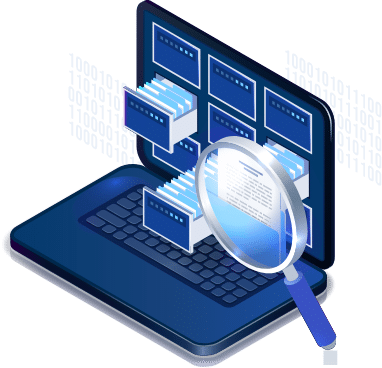Address verification is vital for any business. Inaccurate addresses can be a costly problem for your organization and not just because they prevent prompt, accurate delivery of mailed communications. Correcting them manually involves significant time and expense while still leaving room for human error.
The Importance of Address Verification
Address data quality is at the heart of many business operations, including marketing, sales, customer support and service, and fraud detection. The United States Postal Service handles nearly 2 billion pieces of mail annually with inaccurate or missing address data.
It is all too easy to assume that the address data you hold is accurate – after all the customer themselves may have entered it via a webform. Unfortunately, whenever there is human interaction there exists an opportunity for human error.
From mishearing a component of an address, to transposition of characters, or even plain false data, the opportunities to start with bad data are limitless. The following are all common errors in an address and could lead to the mail being wrongly delivered, returned or lost:
Correct:
956 Main St., Artas, SD 57437
Possible errors:
956 Maine St., Arthur, SD 57437 (“Main” misspelled, wrong town name)
965 Main St., Artas, SD 57437 (building numbers transposed)
956 Main St., Orcas, SC 57437 (wrong town name, wrong state)
And there are as many possibilities for errors as there are addresses.
Address Data Quality Decay Rate
Even if you start out with the correct address, in the correct format, the chances that that data will go bad are not insubstantial. According to USPS, 14.2% of Americans and 19.3% of Businesses move each year. That equates to around 5,000 people every hour!
To put that in perspective, if you start out with 150,000 accurate records with no errors at all, in about five years 50% of your records will be incorrect due to moves alone.
The Cost of Bad Quality Address Data
The cost of inaccurate and incomplete addresses has never been higher. Marketers rely on address quality to increase revenue through targeting, segmentation, acquisition, and cross-selling. The cost of returned and undelivered materials can add up quickly—and cost far more in lost opportunities and customer dissatisfaction than an organization spends on postage.
To better understand the cost of bad quality address data, let’s look at a business with a mailing database of 15,000 records that mails its customers a 20-page catalog every month.
The cost of mailing these catalogs soon adds up:
Design and layout: $7,500
Printing: $4,000
Mailing: $12,000
Monthly cost: $23,500
If just 10% of the addresses are incorrect in some way, that equates to $2,350 per month – or $28,200 per year – in direct costs. But the indirect costs can be far higher.
If those 15,000 catalogs bring in sales of $250,000 per month, and the catalog isn’t reaching 10% of the customers, that’s another $25,000 per month – or $300,000 per year – in lost sales.
Between the direct costs and lost opportunities, that’s $328,200 per year wasted!
And that doesn’t include the hidden costs of customer dissatisfaction, and damage to the business’ reputation.
Only quality address validation software that meets strict standards can ensure reliable results.
Address Verification Standards
Delivery Point Validation
Delivery Point Validation (DPV) is a USPS technology that validates the accuracy of address information down to the individual mailing address. By using DPV to validate addresses, you can detect non-existent addresses that may have been entered incorrectly or submitted as fictitious addresses.
Without DPV, the address validation process only verifies that an individual address is within a range of valid addresses for the given street. For example, the USPS data indicates that the range of addresses on Maple Lane is 500 to 1000. You attempt to validate an address of 610 Maple Ln. Without DPV, this address would appear to be valid because it is in the range of 500 to 1000. However, in reality the address 610 Maple Ln does not exist: the house numbers in this section of the street are 608, 609, 613, and 616. With DPV processing, you would be alerted to the fact that 610 Maple Ln does not exist and you could take action to correct the address.
DPV also provides unique address attributes to help produce more targeted mailing lists. For example, DPV can indicate if a location is vacant and can identify commercial mail receiving agencies (CMRAs) and private mail boxes.
Locatable Address Conversion System
Locatable Address Conversion System (LACS) is a service offered by the United States Postal Service to update mailing addresses when a street is renamed, or the address is updated for 911.
For one example, take Elm Street in East Machias, Maine. The name was chosen, as you might guess, because of elm trees. But when all the trees developed Dutch elm disease, it was renamed Jacksonville Road, chosen because it leads to the village of Jacksonville.
Without LACS, you would have no way of knowing if a street was renamed unless someone told you – and they may not think to tell you.
Coding Accuracy Support System Certification
The Coding Accuracy Support System (CASS) enables the USPS to evaluate the accuracy of software that corrects and matches street addresses. CASS certification shows that a particular software application meets the USPS requirements for quality and accuracy.
CASS software will correct and standardize addresses. It will also add missing address information, such as ZIP codes, cities, and states to ensure the address is complete. CASS Certified software is required to perform Delivery Point Validation to verify whether or not an address is a deliverable address, and to check against the Locatable Address Conversion System to update addresses that have been renamed or renumbered.
Presort Accuracy, Validation, and Evaluation
Presort Accuracy, Validation, and Evaluation (PAVE) is a process, designed in cooperation with the mailing industry, to evaluate presort software and determine its accuracy in sorting mail. It provides a common platform to measure the quality of presort products, including an evaluation of standardized documentation, container labels and postage statement facsimiles that support presorted mailings, and, by doing so, improves the accuracy of presorted mailings.
DataMatch Enterprise
There are numerous databases and resources available to verify address data. For single addresses, or up to maybe 5 per day, there are a few websites where you can check the validity of an address for free. But when you have tens or hundreds of thousands addresses, you need to be able to verify them against a number of sources.
DataMatch Enterprise Address Verification utilizes DPV and LACS and is CASS and PAVE certified. It comes equipped with address validation and geocoding technology, which helps standardize your address lists for mailings.










































